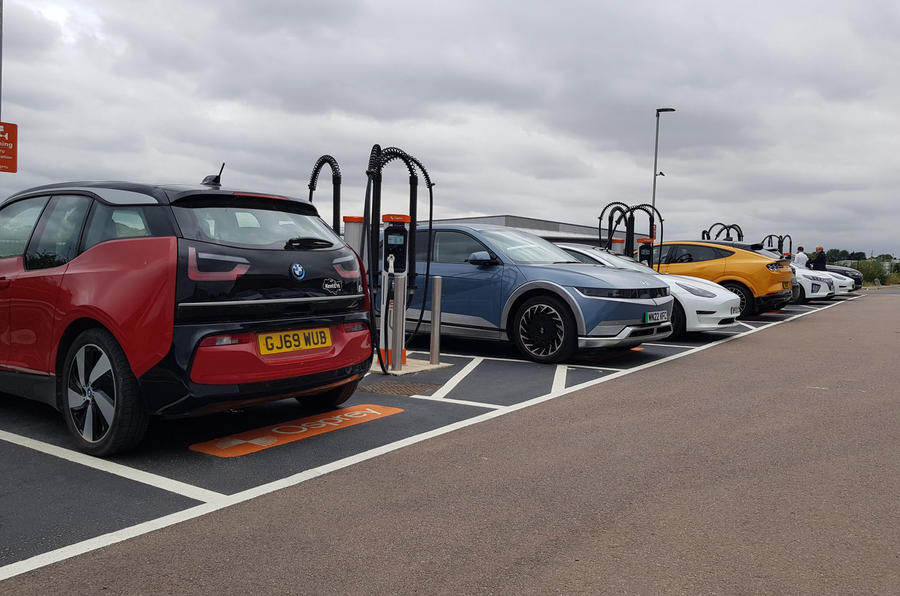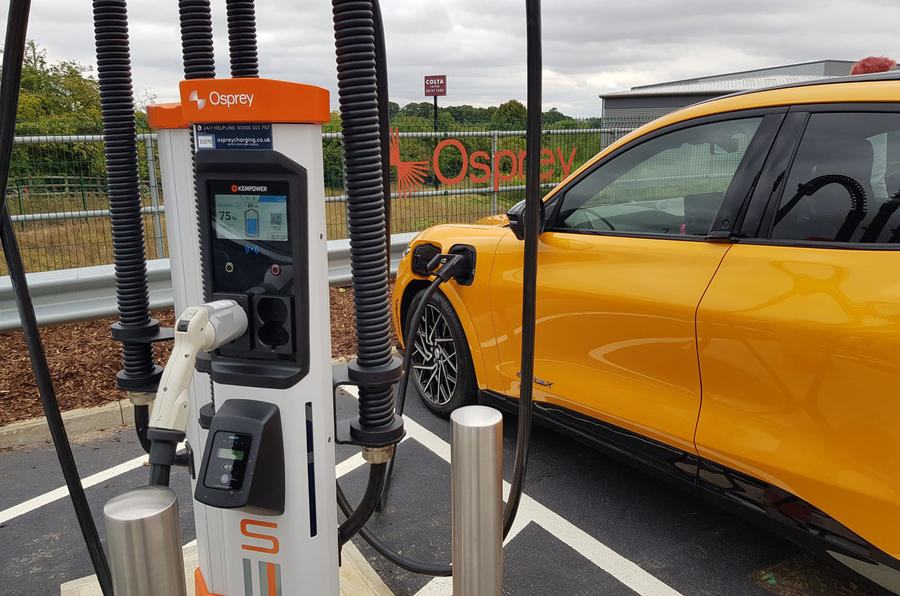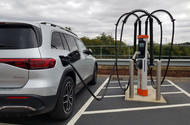The site has eight 150kWh charging bays, with lightweight cables and no kerbs
Charger provider has opened its first fully accessible high-speed EV-charging hub in the UK
High-speed, accessible EV charging sites will become the norm in the UK, according to the boss of Osprey Charging, which is aiming to eliminate range anxiety – especially for disabled drivers.
Osprey CEO Ian Johnston’s words came as the firm opened its first fully disabled-accessible site in the UK, situated in Brackley, Northamptonshire. This hosts eight 150kWh charging bays fed by an on-site substation, with lightweight cables, no kerbs and low-positioned screens and buttons for use by anyone who needs them.
“Whenever we build a new hub going forward, this will be the standard in terms of the accessible layout and the charging hardware that we’re using,” Johnston said. “We just have to keep pushing ourselves forward to make [charging] hubs better and better.”
Space is one of the new site’s defining factors, with 12 parking bays used for just eight chargers to allow easy access for wheelchair users.

“It’s all about giving drivers the space that they need when they get out of the vehicle to set up and use any mobility aids that they may have and allowing them to approach the charger without there being kerbs or any other obstacles,” said Johnston. “These are very specific things that can render a site completely unusable to many drivers in the UK today.
“There are a lot of things to consider, such as the screen height and the button height, but the most important thing is around the cable-management system, and with this site, this means it’s so easy for anyone to connect a cable to their vehicle, and they can even do it one-handed.
“These are all the steps that you have to pay attention to and spend your time and money on getting right to deliver a truly accessible experience. It’s a milestone for us, but we have to keep pushing on from here.
“This is the minimum of what every site should be like going forward.”
Johnston also spoke about how future Osprey sites will follow a similar, if not identical, layout to this one, allowing more motorists, including those who are disabled, to easily use them.
Range anxiety is exacerbated for less able-bodied drivers, an investigation by Autocar found earlier this year, with many charging sites not suitable for these users.
Johnston hopes that will be a “thing of the past” if more hubs adopt an accessible approach from the start.

“I think charger anxiety is now a phrase used more [than range anxiety] by drivers,” he said. “There are 5000 rapid chargers in the UK, and the vast majority aren’t like this.”
The UK government is also looking to help disabled drivers, with ministers looking to introduce new “accessibility standards to give a clear definition” of how accessible a charger is.
To do this, the Department for Transport will grade a site as fully accessible, partially accessible or not accessible, so drivers will know whether they can use it before they arrive.
Source: Autocar
